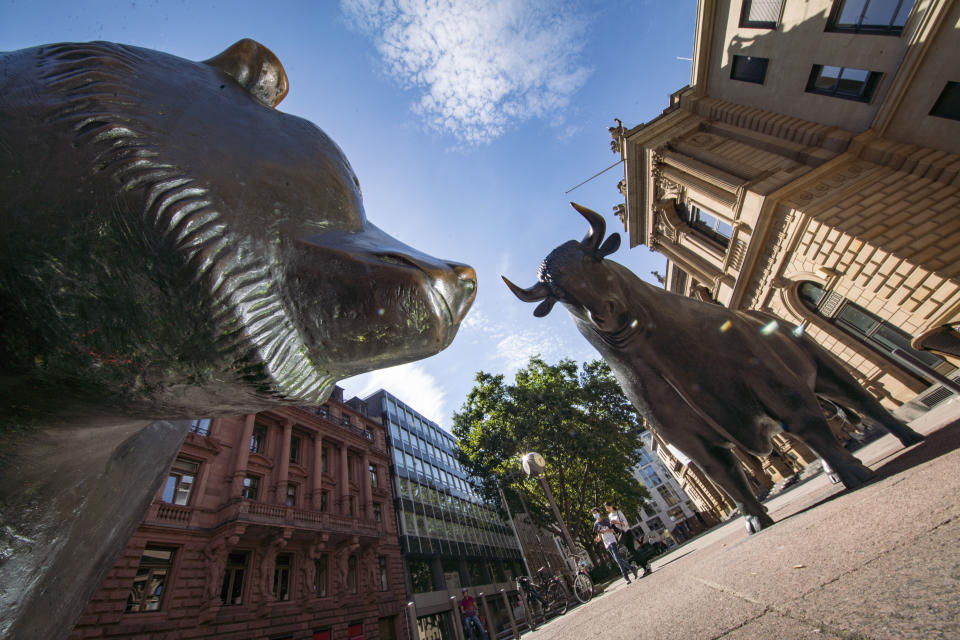European stocks struggle for momentum

European stock markets were quiet on Friday, as flaring tensions between the US and China offset solid economic data around the world.
Friday morning saw better-than-expected economic data across the eurozone, suggesting economies were recovering well after COVID-19 lockdowns. Exports jumped in Germany, while industrial production numbers came in better-than-expected in Germany, France, and Spain.
“A surge in exports and industrial production confirms the 'V'-shaped rebound,” Carsten Brzeski, the chief eurozone economist and global head of macro at Dutch bank ING, wrote of Germany in a note on Friday morning.
“The shape of the subsequent recovery is much more uncertain,” Brzeski wrote.
US jobs numbers also came in better-than-expected. The economy added 1.8 million new jobs in July as the unemployment rate fell to 10.2%.
The US jobs figures provided a short-lived boost to European stocks, sending most major markets into the green. But the rally quickly faded and most indexes were either flat or falling by mid-afternoon.
The FTSE 100 (^FTSE) was down 0.1%, the CAC 40 (^FCHI) fell 0.2% in Paris, and Spain’s IBEX 35 (^IBEX) dropped 0.8%. The DAX (^GDAXI) rose 0.2% in Germany.
Wall Street opened lower. The S&P 500 (^GSPC) was down 0.3%, the Dow Jones (^DJI) fell 0.4%, and the Nasdaq (^IXIC) dropped 0.3%.
Sentiment wasn’t helped by flaring tensions between the US and China overnight. US president Donald Trump signed an executive order requiring all US companies to stop dealing with Chinese social media apps TikTok and WeChat within 45 days.
Asian stock markets fell overnight and Jim Reid, a senior strategist at Deutsche Bank, pointed to Trump’s TikTok ban as a key reason for the sell-off.
“Against this backdrop, risk sentiment has turned negative overnight in Asia,” Reid and his team wrote in a morning note to clients.
Japan’s Nikkei (^N225) fell 0.3%, the Hong Kong Hang Seng (^HSI) dropped 1.8%, the Shanghai Composite (000001.SS) declined by 0.9%, and the Shenzen Component (399001.SZ) fell 1.5%. Australia’s ASX 200 (^AXJO) dropped by 0.6%.
“The president lobbed another tech grenade in his cold war with Beijing, almost guaranteeing some kind of retaliation from the rival superpower,” said Connor Campbell, a financial analyst at SpreadEx.
In London, Hikma Pharmaceuticals (HIK.L) jumped 11% after reporting a 25% rise in half-year operating profit, raising full-year forecasts, and hiking its dividend. The drug company said it was seeing strong demand for its products during the pandemic.

